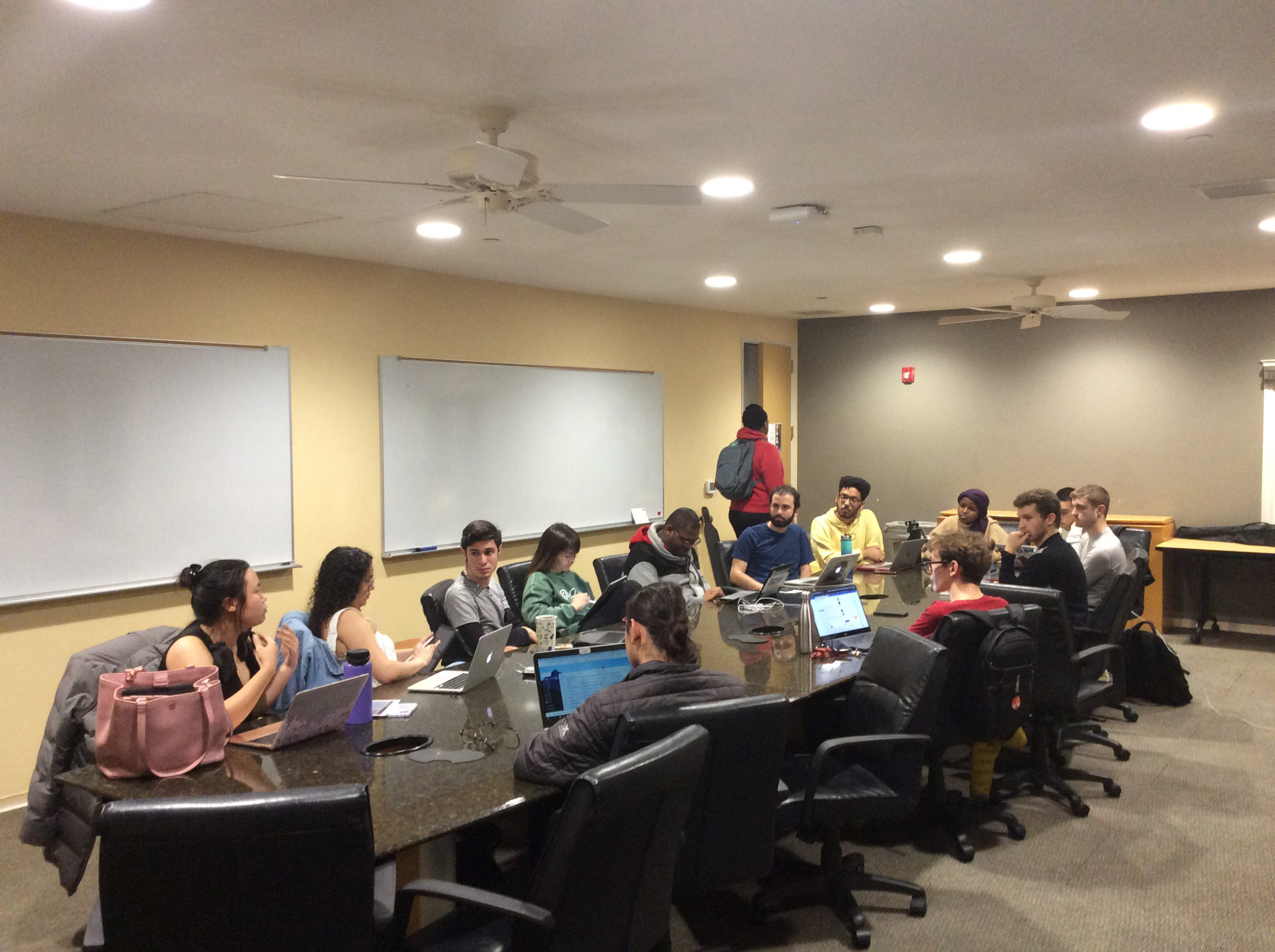Following an eventful summer, the Undergraduate Senate plans to increase its support for undocumented and first-generation and low-income (FLI) students and explore new ways to engage the student body remotely during fall quarter, according to three undergraduate senators.
Senator Gabby Crooks ’23 told The Daily that “this summer has been hectic,” adding that senators “have done a lot even though we are not actively in our terms yet.”
Senator Alain Perez ’23 said that several significant events over the summer spurred the Senate to action, notably the ongoing effects of the pandemic, racial reckoning in the United States following the killing of George Floyd and government policies affecting international and undocumented students.
Tackling campus police presence
The Senate began the summer by addressing police presence on campus. According to Perez, in early June the Senate engaged in conversations with Jael Kerandi, the University of Minnesota, Twin Cities’ student body president, who played a central role in ending UMN’s relationship with the Minneapolis Police Department.
Kerandi’s message of moving past conversation and taking action resonated with the Senate. Perez, who is a Daily staff member, said he realized that “it’s important to understand the limits of when you’re done having conversations and need to start demanding and creating change.”
The Senate unanimously passed a resolution on June 2 condemning police violence on and off campus and calling for oversight of Stanford’s Department of Public Safety (SUDPS), which includes campus police. The resolution asks the University to establish a community commission to oversee policing at Stanford, release policing data and mandate anti-racism training for police officers.
In a June 10 email, President Marc Tessier-Lavigne announced the creation of a Community Board on Public Safety, which will be responsible for advising University leaders on public safety policies and reviewing data “disaggregated by race, gender and other demographics.”
Advocacy for international students
After U.S. Immigration and Customs Enforcement (ICE) issued a directive on July 6 that would have revoked visas for international students taking an online course load, the Senate, in a joint resolution with the Graduate Student Council (GSC), endorsed a petition that called on Stanford to guarantee in-person classes for international students, among other measures. The Senate later passed a separate resolution condemning ICE’s actions and again urging Stanford to prioritize in-person enrollment for international students.
To advocate for international students, the Associated Students of Stanford University (ASSU) launched the Students2Stay coalition. Senator Princess Vongchanh ’23 described the coalition as a social media campaign “made up of student activists and advocates … across the country” that “aims to advocate for the protection of all students and college community members who are at risk of detainment, deportation, and visa complications.”
The University took legal action in support of international students, filing an amicus brief in the Harvard and MIT lawsuit and joining 19 other colleges and universities in a lawsuit fighting ICE’s rule. Following intense opposition from Stanford and other universities, the directive was rescinded.
Supporting undocumented students and campus workers
After the U.S. Department of Homeland Security announced in July that it would no longer accept new applications for the Deferred Action for Childhood Arrivals (DACA) program, despite a June Supreme Court ruling stating that DACA protections must be maintained, Students2Stay shifted its attention to undocumented students on campus. The Senate passed a resolution that directs the ASSU “to amplify immigrant voices” and calls on Stanford’s administration to stand in solidarity with DACA recipients.
Perez said that he believes it is important to highlight the challenges faced by undocumented students.
“A lot of people showed up for international students,” Perez said, “but a lot of people don’t talk about how unsafe undocumented students are in the world, always at risk of detainment except for when they are on campus.”
Perez added that he will continue to push for Stanford to become a “sanctuary campus,” despite President Marc-Tessier Lavigne declining to use the label in 2017.
On Aug. 27, the Senate and GSC expressed its support for workers on campus in a unanimous resolution. The resolution, which Vongchanh and Crooks co-authored, condemned Stanford “for its refusal to provide previously promised pay continuation to its contracted workers.” Perez, who is a member of Students for Workers’ Rights, called Stanford’s treatment of contracted workers “unethical” and urged the University to be more transparent.
Plans for the 2020-21 academic year
Vongchanh, Perez and Crooks told The Daily that the ASSU will focus on international and undocumented student advocacy during the 2020-21 academic year. Perez said that he is focused on making sure “affordability is transparent to our FLI population,” and that FLI students are supported while attending classes remotely and accessing housing and financial assistance.
Vongchanh said that the Senate is working with the Office of Inclusion, Community and Integrative Learning to collect and advance resources for undocumented students at Stanford. “One major goal,” Vongchanh wrote, “is to create a permanent position for an undocumented student director … whose main goals are to coordinate with undocumented students.”
Holding meetings remotely will continue to present challenges to the ASSU’s work, according to the senators. “Our biggest barrier right now is that everyone is in different time zones,” Crooks said, mentioning that meeting times and frequency may need to be adjusted to accommodate all senators. She added that remote learning may “temper” advocacy efforts since senators are limited in their ability to take “direct action.”
In addition, Crooks said that “something we are really looking forward to is building closer relationships between the various bodies of the ASSU, specifically with the Senate and class presidents” in order to foster more effective advocacy and community building. ASSU communications staff is also exploring new ways to keep students connected on social media and podcasts while at home, Crooks added.
Contact Cameron Ehsan at cehsan ‘at’ stanford.edu.
